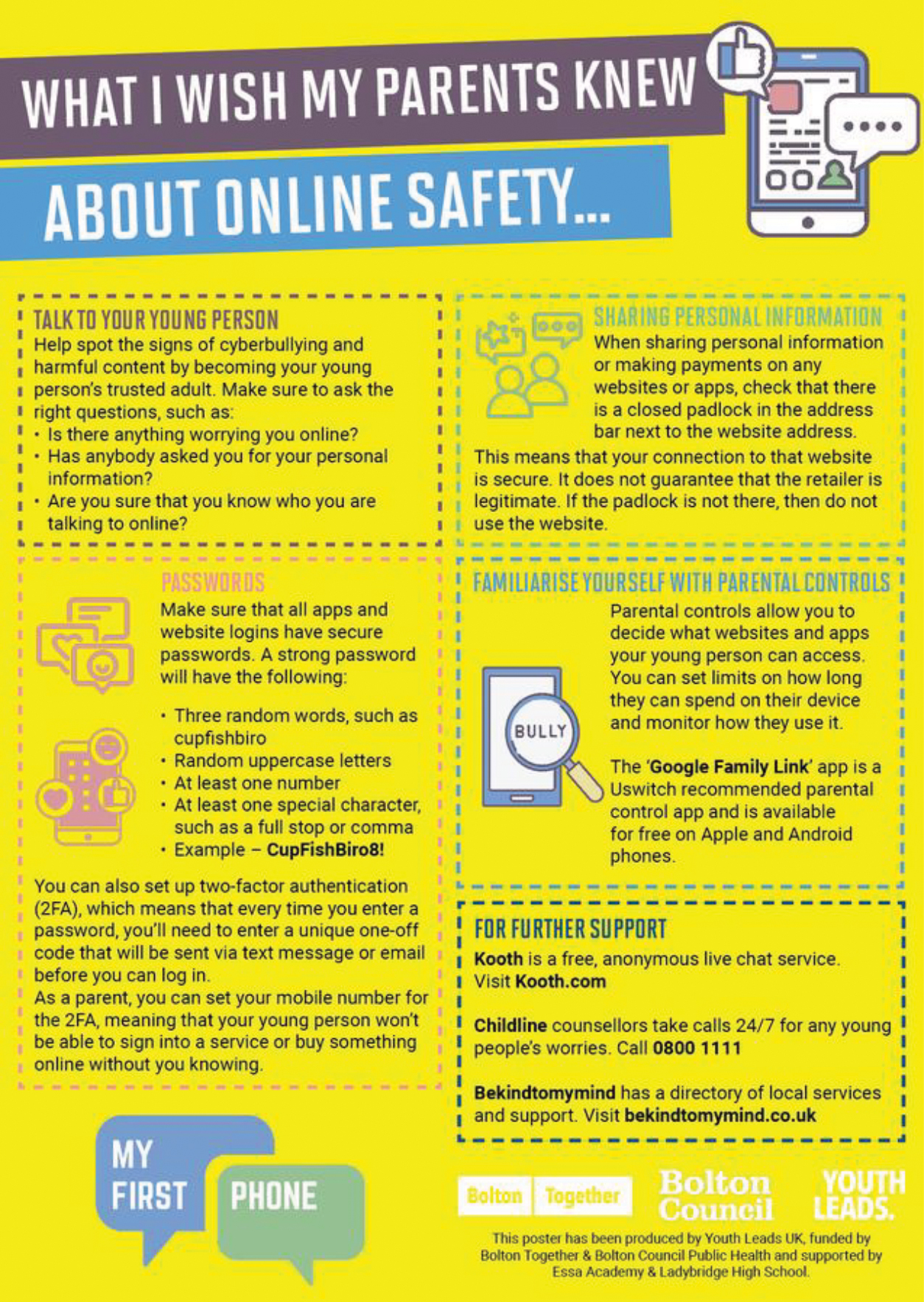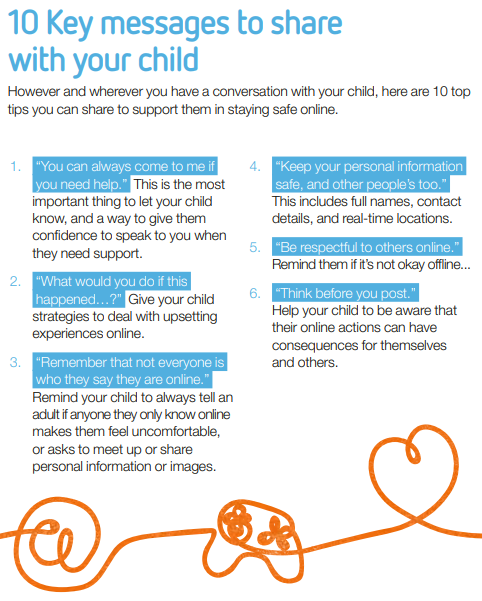Digital Safety and Wellbeing
Using the internet safely and positively is a key message that we promote and we aim for all our students to be positive digital citizens. This video is designed to give you an overview of the support we give to our young people within our school community; giving you advice on how to continue the conversation at home and signpost you to specific support and advice should you need it.
Parents Online Safety Termly Update
July 2024
All schools in the UK have recently been sent information from the National Crime Agency, raising awareness of the recent rise in reporting of financially motivated sexual extortion (a type of online blackmail often known in the media as ‘sextortion’). Children and young people worldwide are being targeted.
This type of crime involves an adult offender (often from an organised crime group based overseas) threatening to release nude or semi-nude images and/or videos of a child or young person, unless they pay money, or meet another financial demand, such as purchasing a pre-paid gift card.
Victims of any age and gender can be targets, however a large proportion of cases have involved male victims aged 14-18.
A child or young person is never to blame if they have been a victim. Offenders will have tricked, groomed and/or manipulated them into sharing an image. Find out more about online blackmail on CEOP Education’s parents and carers website.
This terms digital safety and wellbeing parental guidance video covers ‘sextortion’ and we would recommend that you watch this video. There is also information about how you can monitor your son/daughters use of SnapChat.
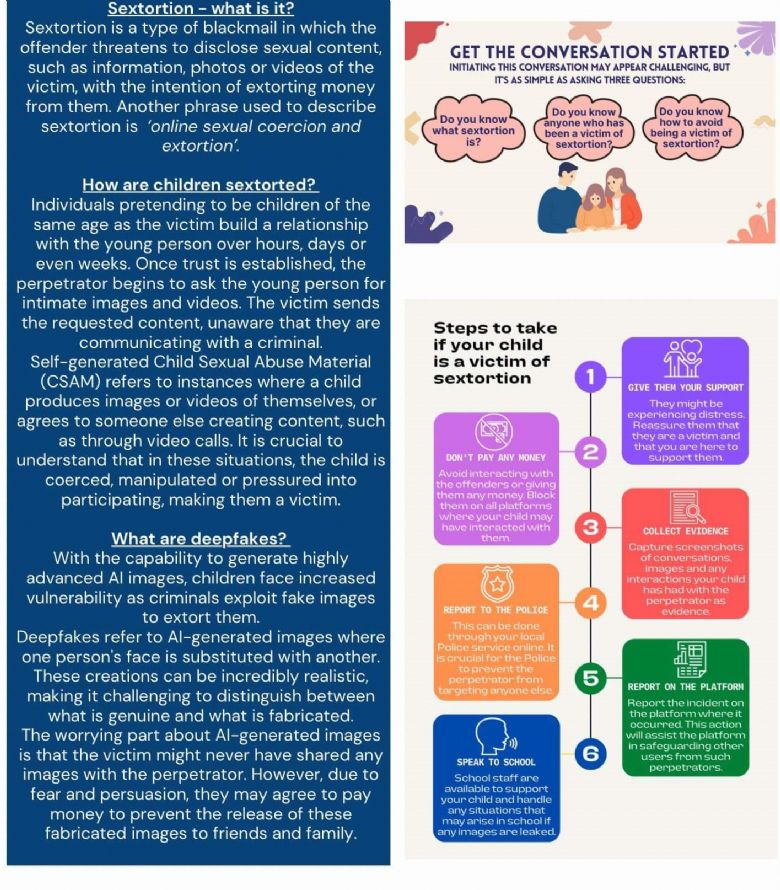
April 2024
This terms video looks at the dangers of TikTok; appropriate security setting; monitoring your child on TikTok. TikTok is a video-sharing social media app which lets people create, view and download looping clips. Typically, these are videos of users lip-syncing and dancing to popular songs or soundbites (often for comic purposes), enhanced with filters, effects and text.
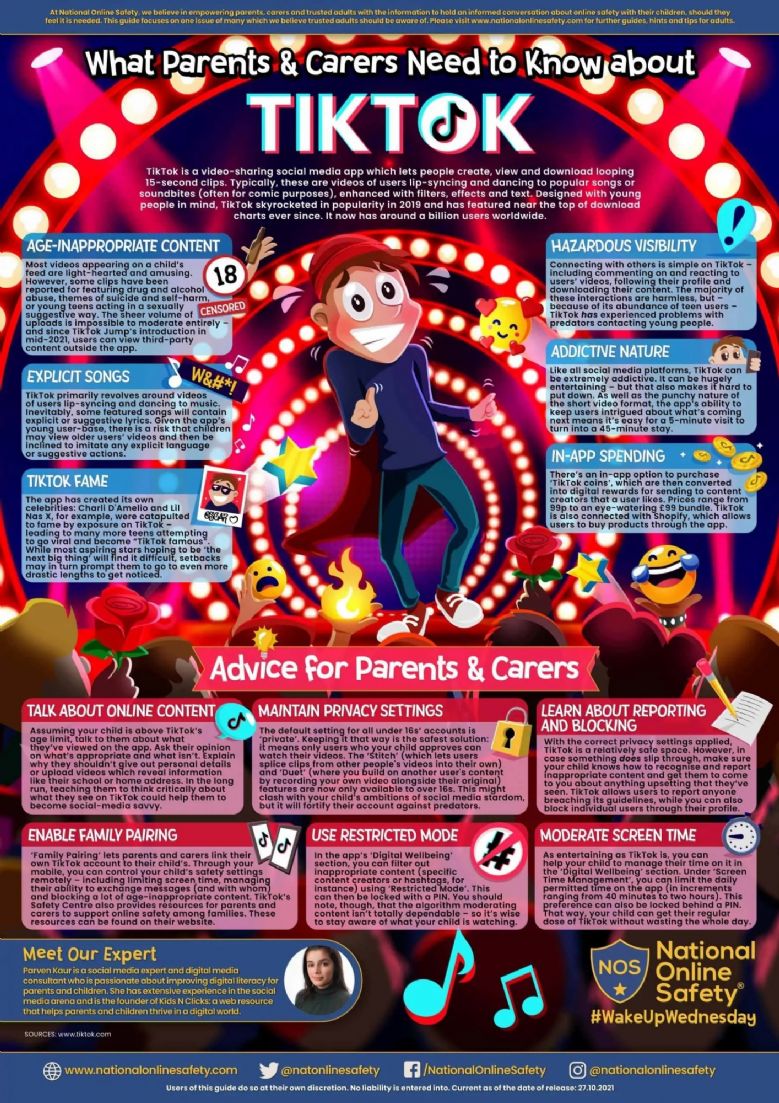
November 2023
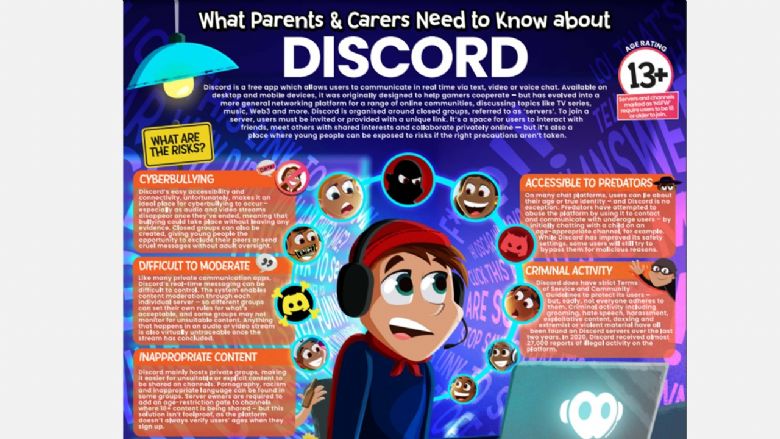
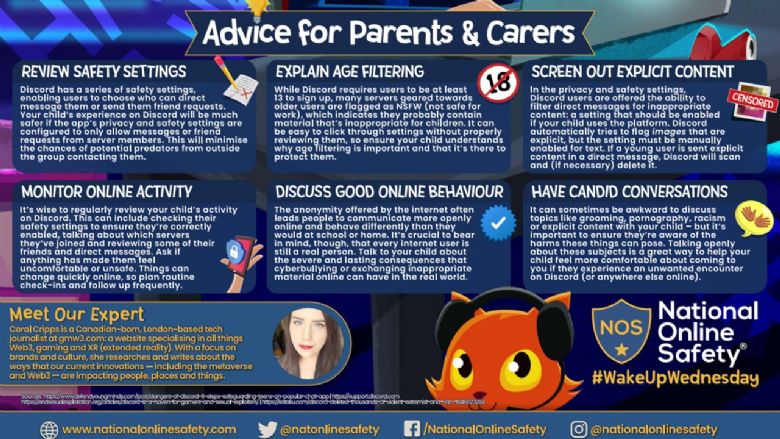
Digital Resiliance Toolkit
We understand that technology can pose some challenges for young people and so with the support of internetmatters.org we have created “The Digital Resilience Toolkit” with the aim to provide you with up-to-date guidance and support when navigating technology and the internet. This toolkit is designed to give you a starting point to support and discuss your son / daughter’s use of the internet and to give you an overview of some of the technologies and content that they may come in contact with.
Starting the Conversation at Home
We would always advise taking an interest in your child’s online activity including games and open conversation with your child to explore how they are using the internet and the technologies they enjoy. It can be challenging to start a conversation at home about online safety and the following information will support. We would recommend starting with the positives of using technology and how it can support our everyday lives. Our children have told us that they would like their parents and carers to talk with them more about this.
The following advice may help you to start a conversation:
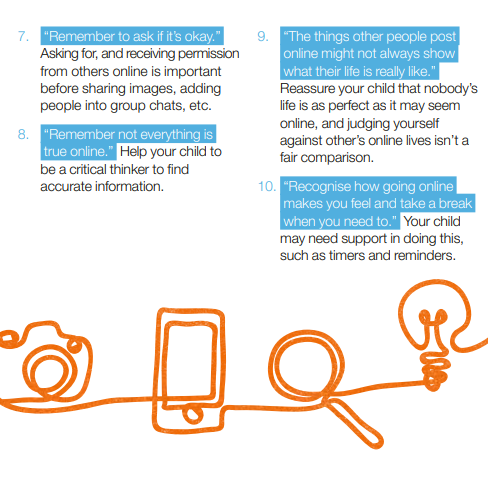
Asking the Awkward
Asking the Awkard is a CEOP Educational Tools to Support you starting the conversations at home. You can access their guide here. They have also provided printed guidance which you can view below:
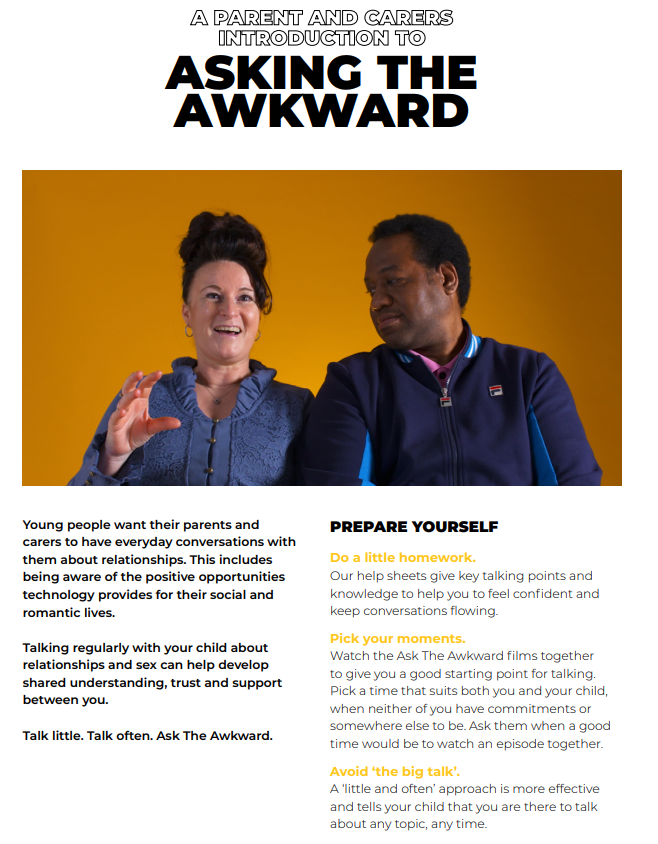
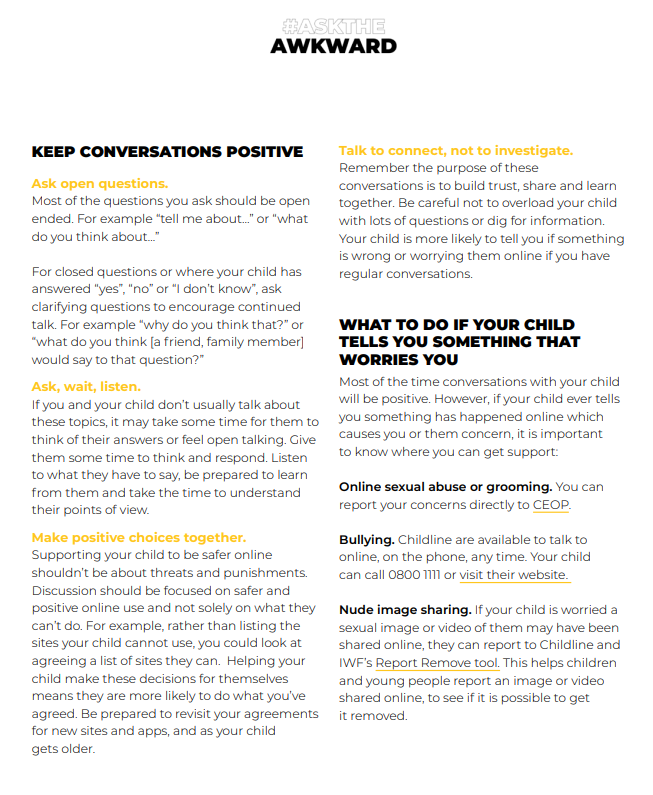
Common Social Media Our Students Use
There are hundreds of different social media platforms available. However, we decided to survey our students to ensure that within the school curriculum we work with our students' safety in the social media they use. To support you as a parent. Here are the findings and the mostly likely social media your son / daughter is using (however, it is important to notice that this is not an exclusive list and there are many others which we will aim to keep you up to date on through the termly parent briefings.
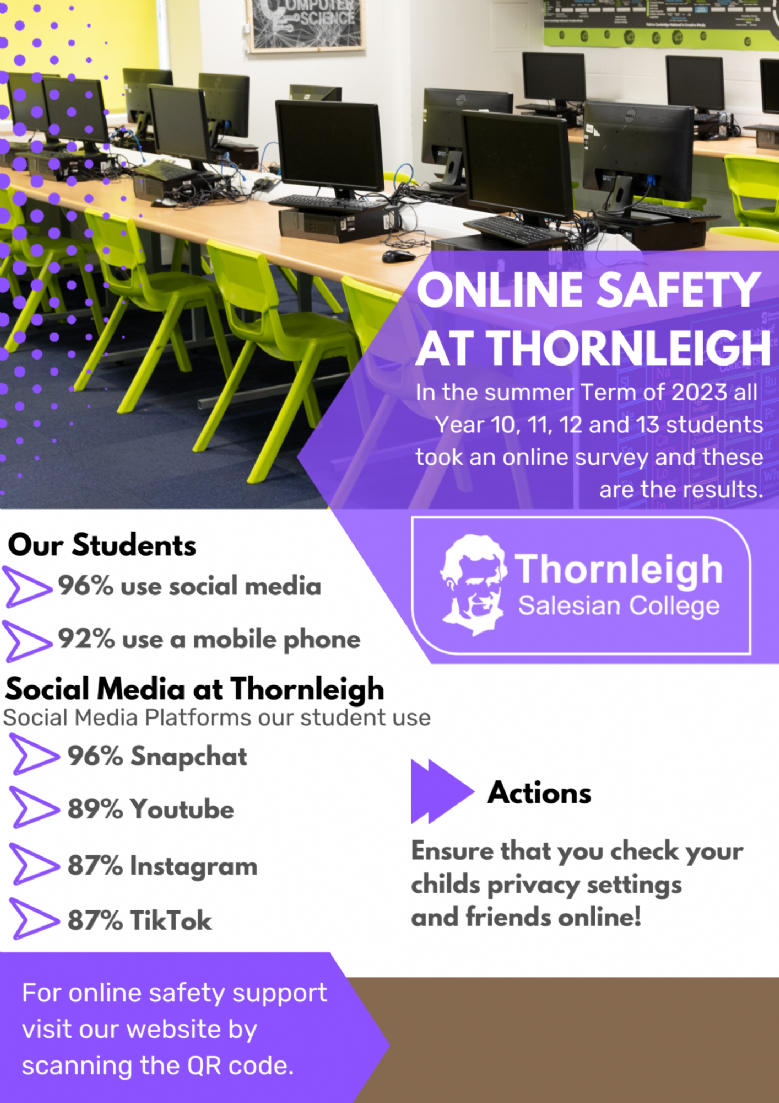
Help at Home
The National College tells us that 80% of children use the internet to search for advice
around online safety and wellbeing. As a school we are ensuring that our students have a
clear understanding of the online tools that give positive guidance and support. A list of
these can be found below as well as the key contacts in school:
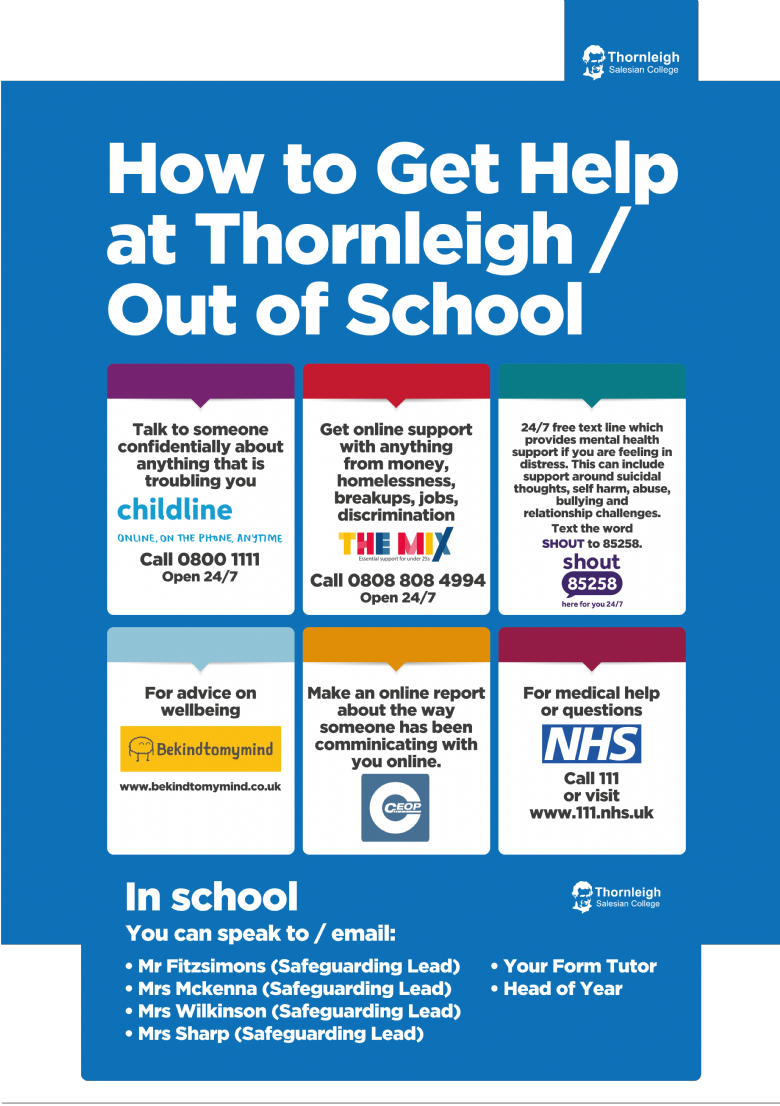
You can use the following links when at home:
Help if My Child is Being Exploited Online?
It is important to safeguard our loved ones from a range of online harms, whether that’s child sexual exploitation, fraud, or extremist influences seeking to radicalise vulnerable people.
Children can often hide negative behaviour online easily from you however, signs can include being secretive over their phones and it can often be the case that they refuse to hand over technology. We would always advice transparency when using tracking and monitoring applications so that your son or daughter is aware that this is what is happening.
The police have a dedicated division responsible for online safety (CEOP: Child Exploitation
and Online Protection) and might be your first point of call if you have concerns about online
activity; you can create a report at CEOP.
Click Here to report a concern to CEOP
If you are concerned that your child may be at risk of radicalisation, help is available through Prevent to make sure they get the support they need to move away from harmful influences. Contacting the authorities will not get the individual into trouble if a criminal act hasn’t been committed. The local authority or police will discuss your concerns, suggest how they can best help and give you access to relevant support and advice.
Help in School
We understand the importance that every child should have an appropriate adult in school that they feel confident speaking to.

To support this we have recently introduced the “Classcharts Wellbeing Module”. This gives students and parents the ability to report an online safety concern directly to school.
You have not allowed cookies and this content may contain cookies.
If you would like to view this content please
Our Digital Safety and Wellbeing Staff team meet up once a term to ensure that our online safety and well-being provision is meeting our students needs. Currently our staff team consists of:
Mr Atkinson: Assistant Headteacher Leading Digital Safety and Wellbeing
Mr Fitzsimons: Headteacher
Mrs Sharp: DSL
Mr Shaw: Network Manager
Mrs Parkinson (Governor)
Online Up-standers!
Research from the National College tells us that 84% of children under the age of 18 recognise that they have witnessed negative online activity. At Thornleigh we emphasise the importance of being an up-stander online rather than a bystander and the importance of reporting incidents of online-bullying to one of our designated safeguarding leads in school or a trusted adult.
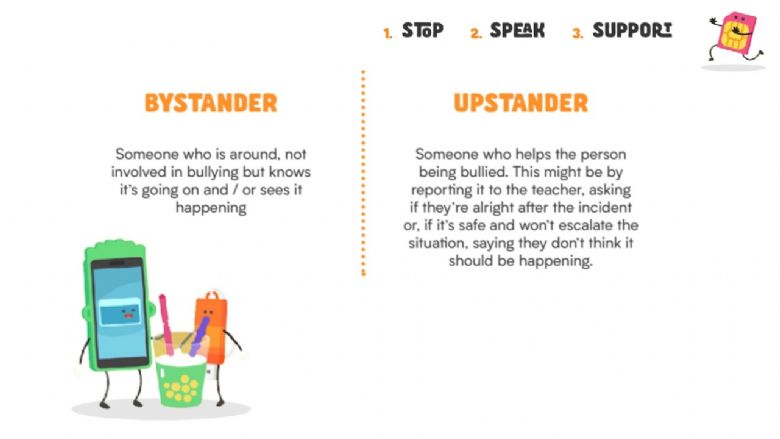
Privacy Settings and Tracking
Many children don’t seem to understand the permanence of the online world. Make sure to stress to your children what a digital footprint is and the impact inappropriate messages or images could have if a future college administrator or employer were to stumble upon them. Things posted online STAY online.
We would always advice transparency when using tracking and monitoring applications so that your son or daughter is aware that this is what is happening. Below are a series of videos that our student digital leaders have created so that you can work with your child to check their privacy settings.
Youtube
TikTok
Snapchat
Wellbeing Settings
There are lots of ways to tell if your child has been looking at a screen for too long and I’m sure you are aware of many of these signs. This could include sore eyes, a headache, feeling sleepy or restlessness, and it is good to talk to your children about these signs, to help them to recognise when they have been using technology for to long. Allowing them to recognise these signs can help your children to start managing their screen time habits, independently. We advise creating clear expectations around the use of screen time and technology, discuss together how long you think they should be spending on their devices. It is now possible to set wellbeing settings on devices and different apps to limit time on a device or app. There are different ways to set wellbeing settings on a mobile phones, tablets and social media. Our digital leaders have shown you a few of these ways below.
If you are tweeting and updating your ‘status’ at a stop light and taking every opportunity to “just check something,” you’re setting a poor precedent for social media usage that your child will surely follow. Always remember to ask yourself if you’re setting a good example and demonstrating proper technology etiquette as well.
Just as you would limit use of a computer, TV or gaming system, you can do the same with a mobile phone. Set rules for the device, only allowing mobile phone usage at certain hours in the evening or after homework has been completed.
You have not allowed cookies and this content may contain cookies.
If you would like to view this content please
Monitoring Your Childs Devices
We would always advise taking an interest in your child’s online activity including games and open conversation with your child to explore how they are using the internet and the technologies they enjoy. Our digital safety student experts have created two videos (android and apple) to explain how you can monitor your child's use of their device. We would recommend phones being kept out of your child's bedroom at night and regular conversations about their use. Make sure that you are responsible for your son/daughters pin code. We have explained in the videos below how you can do this:
Apple Devices
Android Devices
Video under creation.
We recommend Family Link. You can find out information here:
Home Internet Filtering
The government has encouraged Internet Service Providers to support parents to easily filter content to put you in control of what your child can see online. You can switch on family friendly filters to help prevent age inappropriate content being accessed on devices in your home and the UK Safer Internet Centre provides guidance on how to do this for different internet service providers:
Taking Charge of Your Child's Geo-Location
Young people must be aware of who they are sharing their location with. If they are accessing a social networking site via a smartphone or mobile device, they might be disclosing their location without realising it. Location services can be turned on or off within the settings of a device.
School Curriculum
At Thornleigh Salesian College your child will learn about online safety through their computer science lessons, tutor time activities and wider school campaigns including safer internet day. However, online safety is constantly on the agenda for our students and all our staff are trained to dentify and deal with online issues in a positive manner.
At Thornleigh we learn about 8 distinct areas within the curriculum and each term we will let you know which topics are the focus through our social media.
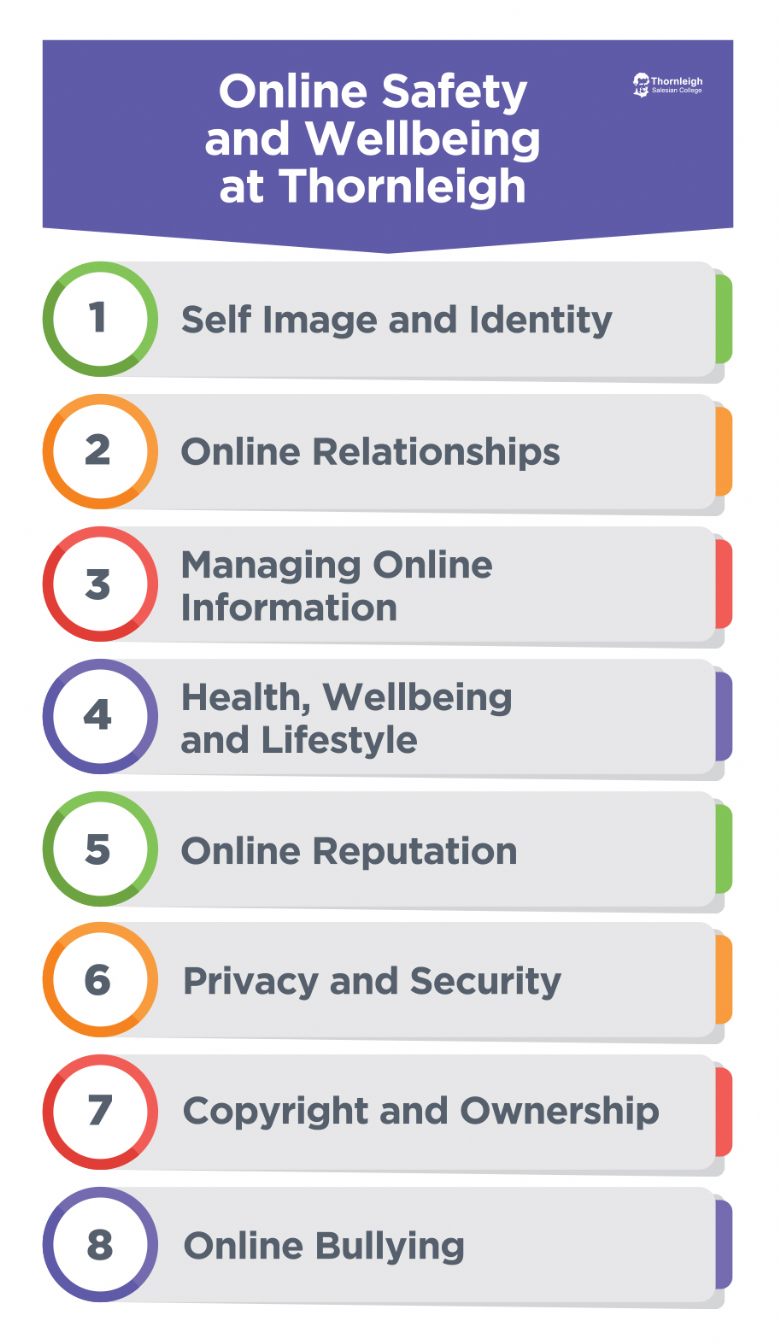
This term the students are learning about the following topics:
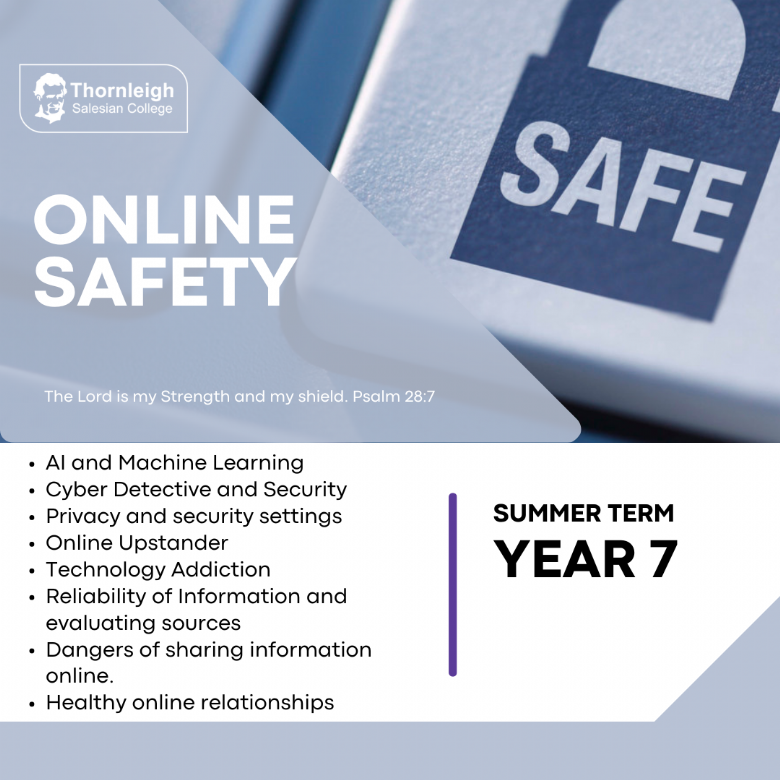
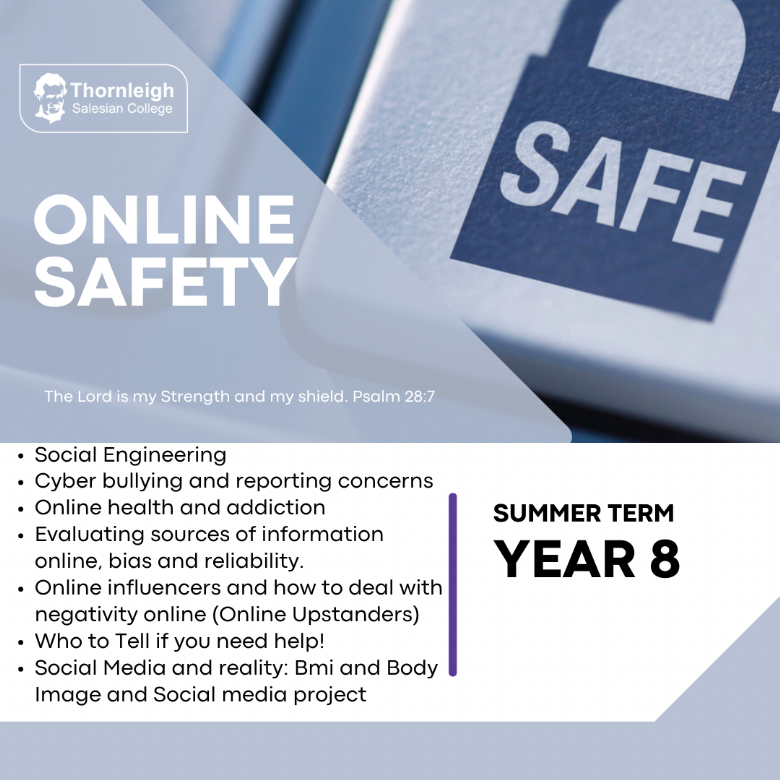
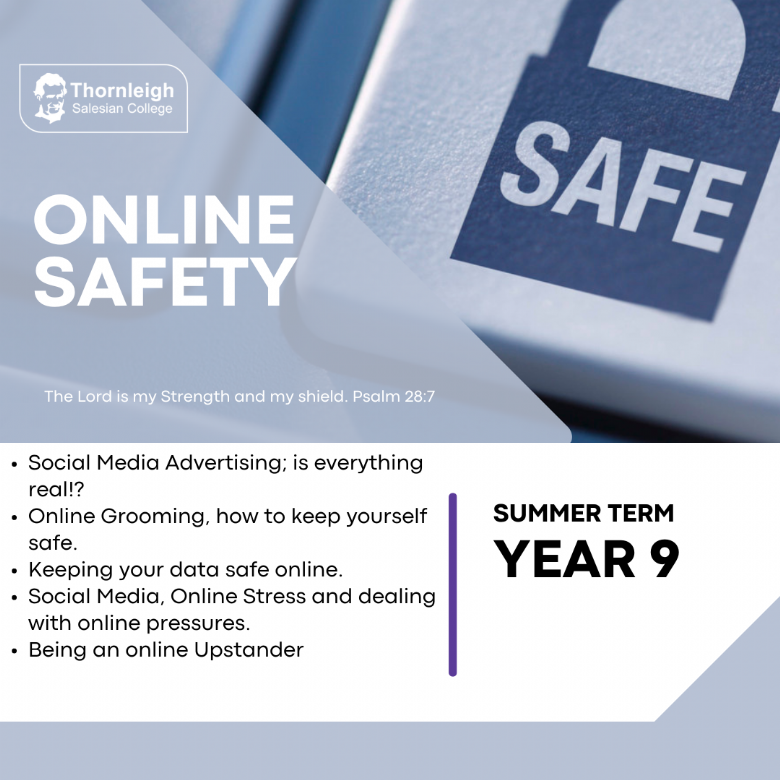
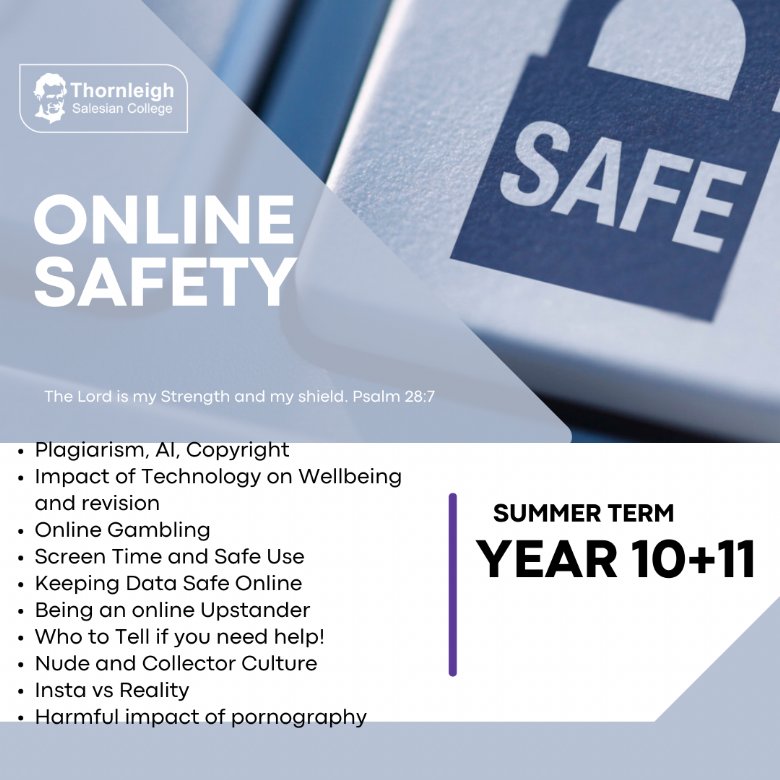
For an overview of how each of the key topics are taught at Thornleigh Salesian College please contact Mr Atkinson
Digital and Wellbeing Leaders
At Thornleigh we want to ensure that our curriculum and support for staff and students is up to date so that we can best prepare students for the positive use of Technology. Therefore we have a dedicated group of digital and well-being leaders across all year groups in the school who regularly meet to advise and guide the teacher team. These students have supported us to create a range of videos to guide you on social media and well-being settings.
